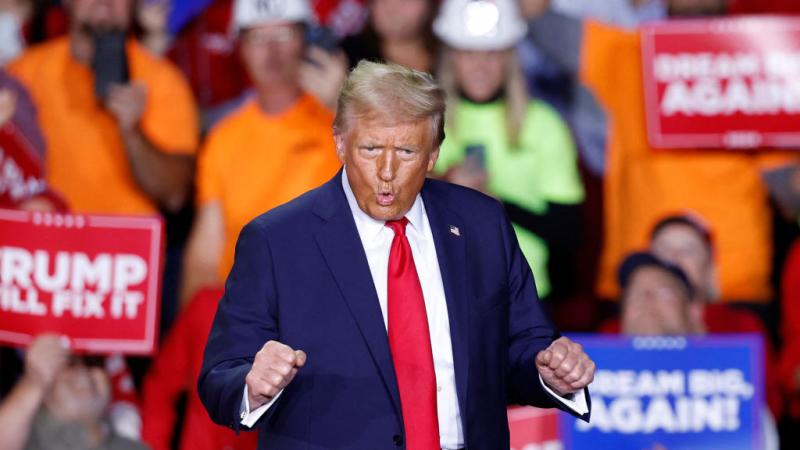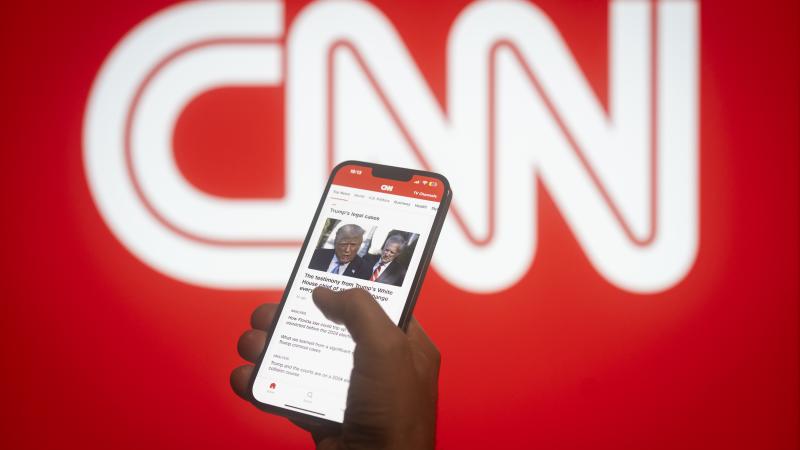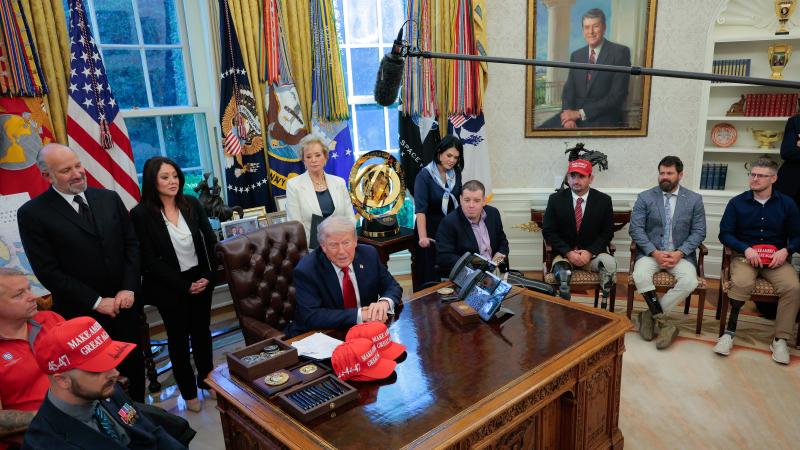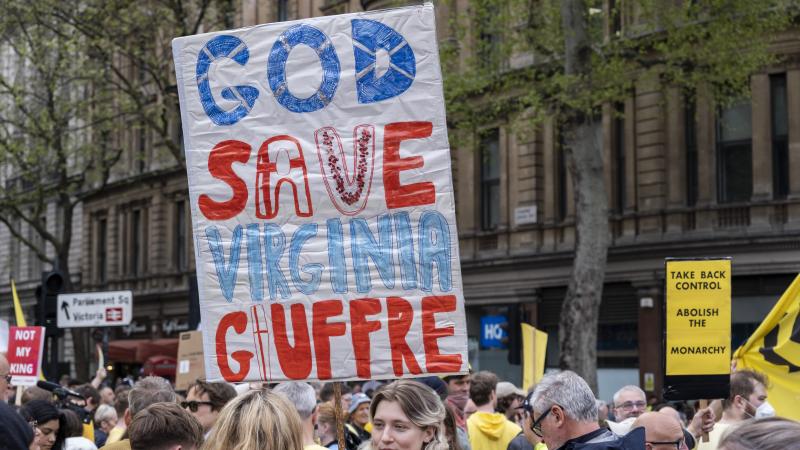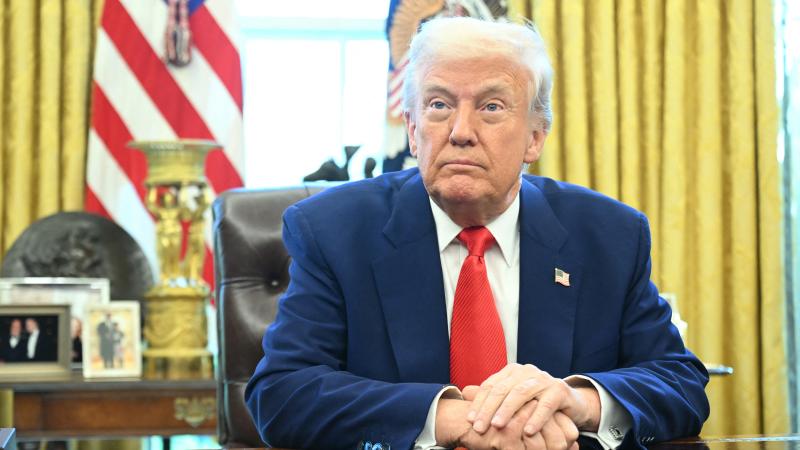RFK Jr. vs WaPo marks first round in Trump's vow for a showdown with legacy media, censorship
Many news outlets have published Robert F. Kennedy Jr. profiles in the past 18 months, but The Washington Post’s in June was the only one to warrant a 20-page response from the Trump HHS nominee
(This story is the first in a four-part series this month by Just the News on self-described watchdogs who push for censorship.)
“If we don’t have free speech, then we just don’t have a free country,” President-elect Donald Trump said in a video posted to social media just day after winning reelection on Nov. 5. “Today, I’m announcing my plan to shatter the left-wing censorship regime.”
Not mentioned by name, though alluded to, are the various non-profit and for-profit groups that have sprung up to battle “fake news” but typically target outlets that lean right of center. Those group include the Trusted News Initiative (TNI), Media Matters for America (MMFA), the Center for Countering Digital Hate (CCDH) and NewsGuard.
“When I am president, this whole rotten system of censorship and information control will be ripped out of the system at large,” Trump also announced.
With his bold pronouncements in mind, the following is Part 1 of a four-part series – a deep dive into some of the organizations to which he was likely referring. Critics of their work say it leads to censorship and loss of advertising for the media outlets that dare challenge the legacy media’s approved narrative.
Trusted News Initiative
Multiple outlets have published profiles of Robert F. Kennedy Jr. in the past 18 months, though only The Washington Post’s in June warranted a 20-page response from Kennedy that includes 78 footnotes. The letter, reviewed by Just the News, includes the expected complaints: The writer referred to Kennedy’s claims as “conspiracy theories” or as having been “debunked,” though he says they hadn’t been.
Too many journalists do not “speak truth to power,” Kennedy wrote, but instead “serve as propagandists pouring concrete on official orthodoxies, and attacking dissent.” The Washington Post did not respond to a request for comment.
Peppered throughout the letter are references to something called the Trusted News Initiative, a global consortium of members founded in 2019 by the BBC that also includes the Associated Press, Reuters, Microsoft, Google, YouTube and The Washington Post. Its goal: combat disinformation.
In the letter, Kennedy, nominated by Trump to run the Department of Health and Human Services, refers to TNI as a “clandestine industry partnership” and a “cabal” made up of “conspirators” whose mission is to label as “misinformation” any assertion that departs from pronouncements made by the Biden-Harris administration, the Center for Disease Control and Prevention and other bureaucracies.
Examples of "misinformation" that proved to be plausible, if not true, include early claims that COVID-19 may have originated in a lab in Wuhan, China; that mRNA vaccines might not prevent infection or transmission of COVID-19; that hydroxychloroquine or ivermectin might be effective in treating the infectious disease; and that a laptop left at a repair shop belonged to first son Hunter Biden.
One of Kennedy’s footnotes includes a quote from TNI Director Jessica Cecil, who said last year: “We don’t fact check; but once we learn from a partner that something is unreliable, that’s when we alert each other.”
The TNI did not respond to a request for comment from Just The News, nor to its request that it reveal the names of outside donors or to clarify whether it gets – directly or indirectly – funds or directives from any government entity.
Trump, in the Nov. 9 video, alluded to the latter when he vowed to end censorship, saying, “We should also enact new laws laying out clear criminal penalties for federal bureaucrats who partner with private entities to do an end run around the Constitution.”
"Calamitous impact on public health"
One of Kennedy’s footnoted accusations reads: “By depriving the public of complete scientific information, TNI may have had a calamitous impact on public health. Nearly 100 studies of ivermectin and 400 studies of hydroxychloroquine revealed that the drugs are safe and effective against COVID-19. TNI social media platforms nevertheless took the official position that these repurposed drugs were unsafe and ineffective.”
He writes that TNI was doing the bidding of the pharmaceutical companies, given that “federal law prohibits the issuance of an Emergency Use Authorization for any vaccine if any approved drug is demonstrated effective against the target disease.”
Kennedy’s letter notes that The Post reported that 70% of calls to one state’s poison control center involved ivermectin, when the real number was 2% (the newspaper ran a correction).
Another footnote in Kennedy’s letter includes a post from Facebook acknowledging it has taken down groups, pages and accounts that disproportionately promote sensationalized content, though it proved to be “often-true content.” In his letter, Kennedy writes: “TNI’s Big Tech Members Google, Microsoft, YouTube, and Facebook agreed to keep other, rival online news suppliers from reaching the market if they publish prohibited claims.”
Facebook is owned by Meta, also a TNI partner, and it routinely struck down conservative posts citing election interference.
One example not in Kennedy’s letter is when it suspended a page that promoted “Reagan,” a movie about Ronald Reagan three months ago and also disallowed an ad featuring an image of star Dennis Quaid and a pro-America, inspirational quote from the 40th president.
Facebook’s actions in the name of election interference came despite Reagan, a Republican, having been dead for 20 years and the last time he ran for president was in 1984. On the other hand, there were no reports of the anti-Trump movie “The Apprentice,” released three weeks prior to the election, having similar issues regarding Facebook.
Facebook didn’t respond to a request for comment from Just the News, but Meta said in February it would to tamp down the amount of political posts that users see on their feeds.
Beyond censorship, some believe that since TNI is essentially a group of legacy media outlets and new-media giants that have banded together to stifle smaller media companies whose reporters they disagree with, putting them at risk of running afoul of antitrust laws.
Thus Kennedy, along with his nonprofit Children’s Health Defense and other plaintiffs, sued four primary members of TNI – the Associated Press, British Broadcasting Company, Reuters and The Post – claiming their intent is to “choke off” accurate reporting if it doesn’t fit their approved narrative.
Shutting down online news publishers and antitrust
The lawsuit specifically mentions the Biden laptop and Covid information, like the lab-leak theory and possible vaccine injuries, as well as the efficacy of various treatments and of lockdowns and other mandated protocols.
“All of the above was and is true or, at a minimum, well within the ambit of legitimate reporting,” reads the lawsuit filed May 31, 2023. "The TNI did not only prevent Internet users from making these claims; it shut down online news publishers who simply reported that such claims were being made by potentially credible sources, such as scientists and physicians."
The lawsuit quotes a senior news controller for BBC News saying that TNI members have agreed to “club together” against “unchecked” outlets that pose an “existential threat” to the dominance of legacy news. “The TNI is thus a paradigmatic antitrust violation: a horizontal agreement among competitor firms to cut off from the market upstart rivals threatening their business model,” reads the lawsuit, which lists tens of millions in damages to a variety of defendants.
Beyond Kennedy, a few other liberals (and Kennedy describes himself as “real” liberal) have criticized TNI, though narrowing their scope to its work in favor of censoring Covid information. Two years ago while speaking to Bill Maher, for example, actor Woody Harrelson asked, “You know about the Trusted News Initiative, right?”
After Maher said the name "sounds familiar,” Harrelson said that it was “great” when focused on election misinformation in 2020, though not when it shifted to vaccine hesitancy.
“They focused on anything that went against the narrative of Covid and how it’s caused,” Harrelson complained.
Kennedy didn’t respond to a request for comment, though in his letter to The Post he wrote: “TNI’s members collectively agreed to suppress prohibited claims online by publicly disparaging them as ‘misinformation’ and 'conspiracy theories.’ Your article about me illustrates, perfectly, those corporate diktats.”
In the second part of a four-part series on watchdogs who censor, Just the News explores the for-profit NewsGuard.


